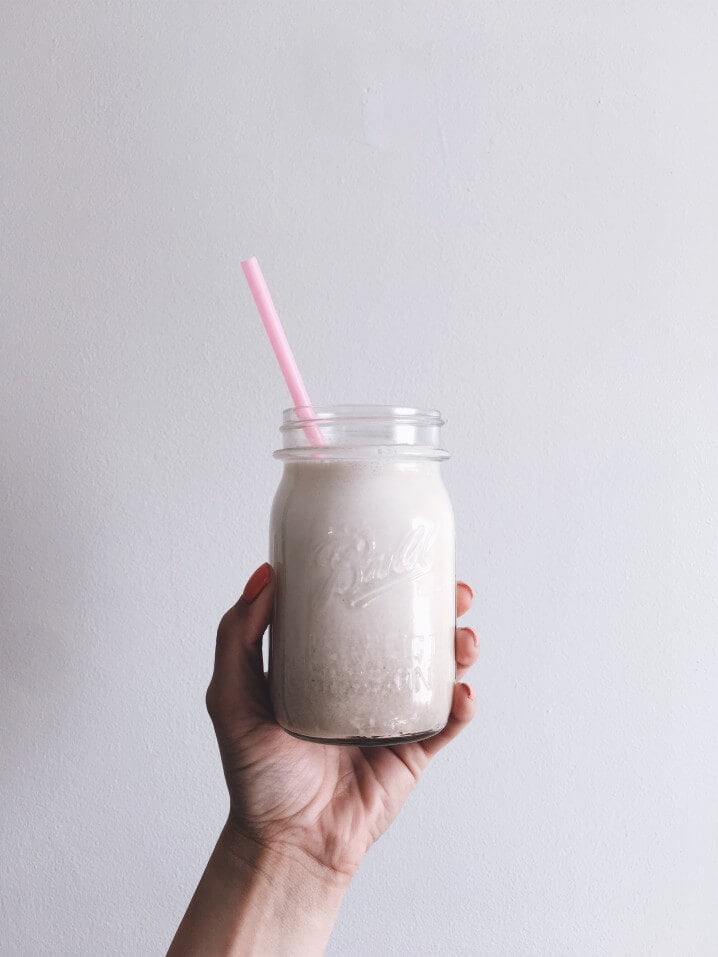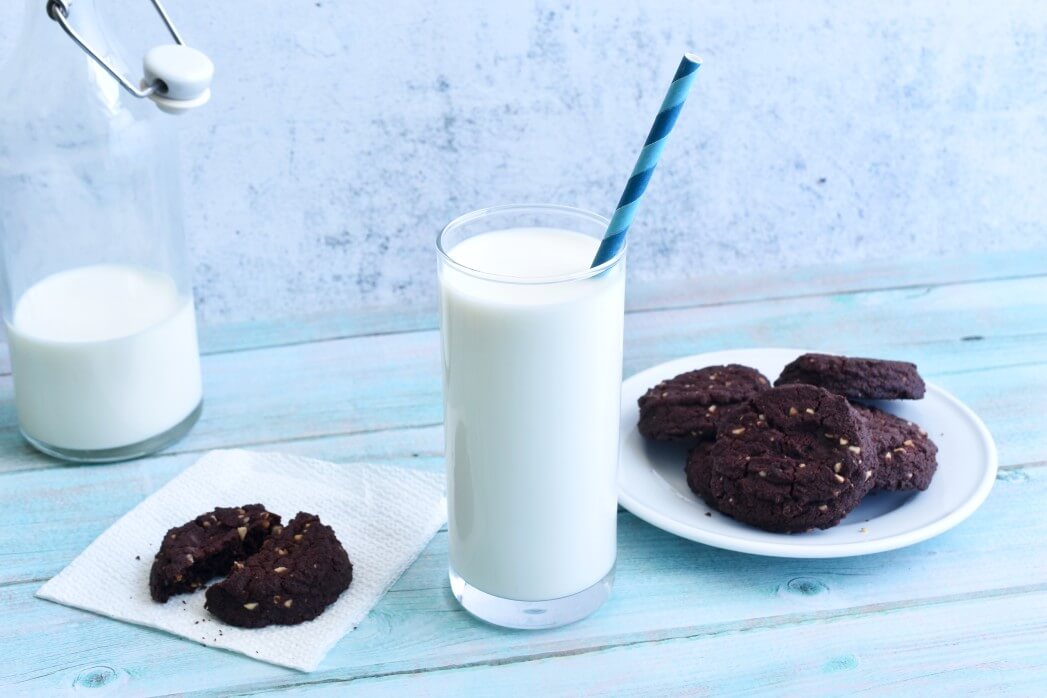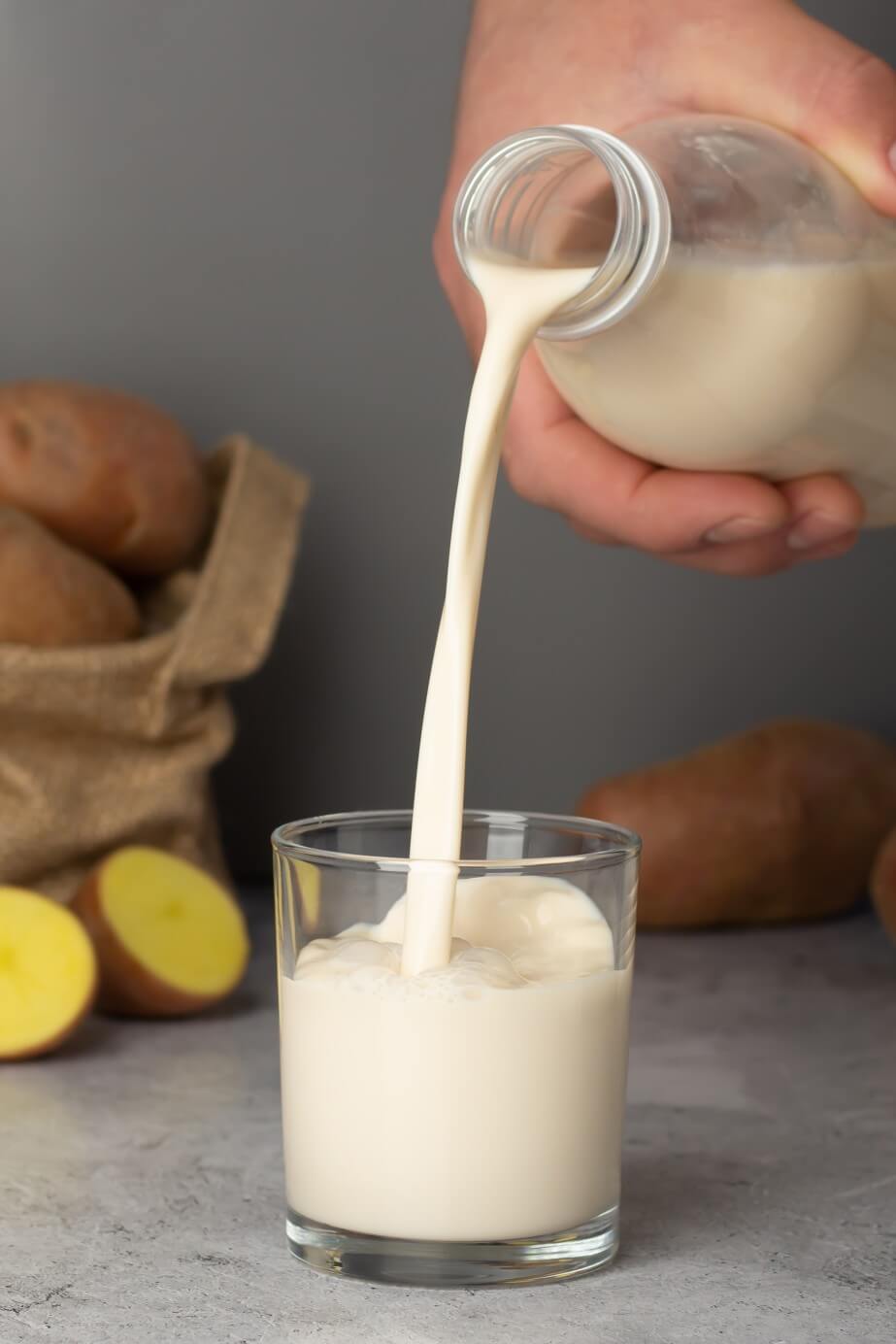Have you ever wondered what distinguishes one kind of plant-based milk from another? In this article, we’re exploring the question of oat milk vs hemp milk - what sets them apart, and how are they similar?
Oat milk is more popular and accessible than hemp milk, but oat milk has more carbs, sugar, and fiber (hemp milk has none). Oat and hemp milk are similar in fat and protein content, but they differ in vitamin and mineral content, as well as taste and texture.
If you’d like to learn more about how these two non-dairy milks specifically relate and differ in terms of their nutritional profiles, keep reading.
We’re also looking at the dietary and allergen information of both types of milk, as well as the benefits and downsides of drinking them.
Nutrition - Oat Milk vs Hemp Milk
Below, we’re doing a head-to-head comparison of the nutritional info of each type of milk - hemp milk and oat milk. These numbers are based on info from the United States Department of Agriculture and represent the nutritional content in a one-cup serving of each type of milk.
1 Cup | Oat Milk | Hemp Milk |
|---|---|---|
Calories | 120 | 60 |
Protein | 3g | 3g |
Fat | 5g | 5g |
Carbohydrates | 16g | 0g |
Fiber | 2g | 0g |
Calories
Oat milk actually has double the calories of hemp milk, with 120 calories per cup compared to hemp milk’s 60 calories per cup.
Cow’s milk (100 calories per cup) has a caloric content that’s kind of a middle ground between the caloric content of oat and hemp milk. So, the lower-cal plant-based alternative here is clearly hemp milk.
Protein
Both oat milk and hemp milk are decent sources of dietary protein. They both have about 3 g of protein per one-cup serving.
Compared to cow’s milk, which has about 8 g of protein per cup, this is a lower amount of protein per serving.
However, there isn’t much of a difference between oat and hemp milk in this area.
In terms of plant-based proteins, you’d be better off choosing something like soy milk or pea milk if you wanted more protein. However, these two options are still useful.
Fat
Oat milk and hemp milk also have basically the same fat content per one-cup serving (about 5 g of fat).
When we look at the kinds of fat in each dairy alternative, hemp milk is rich in polyunsaturated fats.
These kinds of fats are thought to be healthier than saturated fats since they play a role in lowering cholesterol.
On the other hand, oat milk contains mainly lipid fats and doesn’t carry the omega fatty acids that you find in hemp milk.
This is why some people opt for hemp milk instead of oat milk - because it poses more cardiovascular health benefits.

Carbs
Because oats are a cereal grain, oat milk is naturally higher in carbohydrates than hemp milk.
In fact, oat milk has about 16 g of carbs per serving, whereas hemp milk has none. This is why hemp milk is better suited to the keto diet, which restricts carbohydrate intake.
Sugar also varies between these two dairy alternatives, with oat milk having about 7 g of sugar per cup and hemp milk having none.
Oat milk is a good source of dietary fiber, with roughly 2 g of fiber per cup serving, but hemp milk doesn’t contain any fiber per serving.
Related: Is Oat Milk Keto?
Calcium
Both hemp milk and oat milk are decent sources of calcium, which is a vital nutrient for bone health, preventing bone loss, and preventing future osteoporotic fractures.
Oat milk has more calcium per serving than hemp milk does, measuring at about 350 mg of calcium per cup.
Hemp milk only has about 283 mg of calcium per cup serving.
Although the calcium content of hemp milk is lower than that of cow’s milk (about 300 mg per cup), the calcium content of oat milk is higher than that of cow’s milk.
Vitamins and Minerals
Both types of non-dairy milk also have some vitamins and minerals in their nutrient profiles.
Oat milk is rich in Vitamin B12 (1.2 µg per one-cup serving).
And while hemp milk doesn’t contain B12, it does contain a bit of iron (2 mg per cup) - which meets about 11% of the DV of iron.
In addition to these already-included nutrients, both hemp milk and oat milk are often fortified with other vitamins and minerals in the production process.
Added nutrients sometimes include:
- Vitamin D - helps with calcium production and supports mood
- Vitamin A - promotes healthy eyes and immunity
- Magnesium - controls/regulates blood sugar and blood pressure, produces energy, and supports protein synthesis
- Vitamin B2 (Riboflavin) - supports metabolism, growth, and energy production
Watch this video from Unbottled to learn more about milk fortification:
Taste
Taste is also important when it comes to dairy alternatives since you’re likely going to be adding these milks to your cereal, coffee, and other food and drink.
So, how does the flavor profile vary between oat milk and hemp milk?
Oat Milk
Oat milk has a distinctively nutty yet sweet taste, owing to its higher sugar content.
It’s a bit milder than other plant-based milks but still packs in a well-liked flavor that compliments coffee drinks, cereal, and other food and drink.
Some people are under the impression that oat milk will taste like oatmeal or rolled oats, but this isn’t actually the case.
Most plant-based milks do not taste exactly like the plant from which they’re derived since they’re watered down.
Hemp Milk
Hemp milk, on the other hand, stands out in its flavor, which isn’t sweet like its oat milk counterpart.
Hemp milk is known for having a flavor that is nutty (sort of like almond milk) and almost bitter, depending on the product.
Because it comes from the hemp seed, some people even note the seed-like taste of the milk, similar to sunflower.
If you’re looking for a sweetened plant-based milk, this might not be the best option.
However, you can buy sweetened versions of hemp milk or sweeten it yourself at home.

Texture
Texture also differs when we look at non-dairy alternatives.
No two plant-based milks are the same since they’re derived from different ingredients.
So, how exactly does the texture compare between hemp milk and oat milk?
Oat Milk
One of the reasons that oat milk is so popular is that it is very similar to cow’s milk in texture.
It’s fairly creamy and smooth - creamier at least than other plant-based kinds of milk.
Furthermore, the creamy texture is almost as creamy as whole cow’s milk.
If you make homemade oat milk, you may notice that the drink can become pulpy due to the oat particles separating and settling in the milk.
However, store-bought oat milk should be pretty smooth and consistent in most cases.
Hemp Milk
Hemp milk is not quite the same when it comes to texture. You’re not going to have a very thick and creamy hemp milk if you make it homemade and water it down too much.
Most of the time, the mixture is smooth, but to take away some of the bitterness, hemp milk is often not as thick.
Because of its thinner texture, you can use it to make smoothies and add it to different drinks, like coffee.

Dietary and Allergen Information
Both of these plant-based milks are suited to vegan and vegetarian diets, but how do they compare when it comes to food allergens?
Allergens in Oat and Hemp Milk
Luckily, oat milk is free of most allergens - including gluten, soy, peanuts, tree nuts, eggs, and lactose.
However, it’s obviously not free of oats, and it is subject to possible cross-contamination with gluten in the production process.
On the other hand, hemp milk is free of basically every common food allergen, including:
- Soy
- Tree nuts
- Peanuts
- Oats
- Gluten/wheat
- Eggs
- Lactose
Between the two options, hemp milk is going to be all-around better for someone with any food allergies.
Diet-Friendliness of Oat and Hemp Milk
Hemp milk is more suited to various diets than oat milk is, but they’re both friendly to the vegan and vegetarian lifestyles.
Allergen | Oat Milk | Hemp Milk |
|---|---|---|
Keto | No | Yes |
Paleo | No | Yes |
Whole30 | No | Yes |
Oat Milk Pros & Cons
At the end of the day, there are benefits to both kinds of milk, but what sets oat milk apart? And what are the possible downsides to drinking oat milk?
Pros
Obviously, oat milk is free of lactose, as well as many other common allergens. It’s also vegan-friendly and vegetarian-friendly, making it a good plant-based choice for milk.
One big upside to this drink is that it tastes so good and has such a sweet, creamy consistency.
It rivals cow’s milk in many ways, and it’s also becoming very accessible in supermarkets, coffee shops, and restaurants.
Furthermore, it has a decent dietary fiber content, which means you are getting beta-glucans that support a healthy gut and digestion.
Additionally, oat milk is rich in Vitamin B12, which is an important B vitamin for mood regulation, metabolism, DNA synthesis, and red blood cell formation.
And, on top of all of that, oat milk is a decent source of protein per serving.
Cons
One downside to oat milk is that it is more expensive than cow’s milk because it’s not quite as common as dairy.
- Higher in sugar, fat, carbs, and calories than hemp milk
- Not keto-friendly
- Not paleo-friendly
Compared to hemp milk, oat milk has more carbs, calories, fat, and sugar.
It also falls short in terms of its allergy-friendliness because you run the risk of having cross-contaminated oats during production in grain facilities.

Hemp Milk Pros & Cons
So, why would someone want to choose to drink hemp milk versus other plant-based milks?
Let’s consider the advantages and drawbacks to this dairy alternative, from nutrition to taste, texture, and more.
Pros
First of all, hemp milk is an ultra-healthy plant-based milk option, with a low caloric content and zero carbs or sugars.
It also supplies a decent amount of healthy protein per serving, which is essential for growth, energy, and muscle-building processes.
Hemp milk also meets the requirements of many diets, such as the paleo, ketogenic, and Whole30 diets.
And, it’s a great option for those with common food allergies, such as nut or gluten intolerances.
Other pros of drinking hemp milk include:
- Presence of healthy minerals like iron and calcium
- Healthy, polyunsaturated fats that are good for cardiovascular health
- Both vegan- and vegetarian-friendly
- Supports heart health via arginine content, which produces nitric oxide to regulate blood pressure
- Supports brain and normal skin health/appearance via the omega fatty acids
Cons
Unfortunately, hemp milk lacks the dietary fiber that you’ll find in oat milk.
It also contains some sodium content, which isn’t healthy for the heart when consumed in excess.
Another drawback to drinking hemp milk is that it’s simply not very accessible.
It’s one of the newer plant-based milks you’ll find on the market if you can even find it at all.
This, unfortunately, also means that most hemp milk products are going to be pricey, and you won’t get as much bang for your buck as you do with cow’s milk.
Conclusion
When we compare oat milk vs hemp milk, it’s clear that they both pose benefits to the plant-based consumer.
As a dairy milk alternative, both kinds of milk are nutrient-dense, packed with protein, calcium, and other vitamins and minerals.
However, they differ in terms of their overall health, as oat milk has far more calories, carbs, and sugars.
These two dairy alternatives also have different tastes and textures, as oat milk is much more sweet, mild, creamy, and thick than hemp milk is.
With hemp milk, you’re going to get a healthier, more bitter drink.
This aside, both drinks are great options for those with common food allergies, and they can suit most diet types.
To learn more about non-dairy milks, check out our other articles exploring their benefits and nutritional information.
